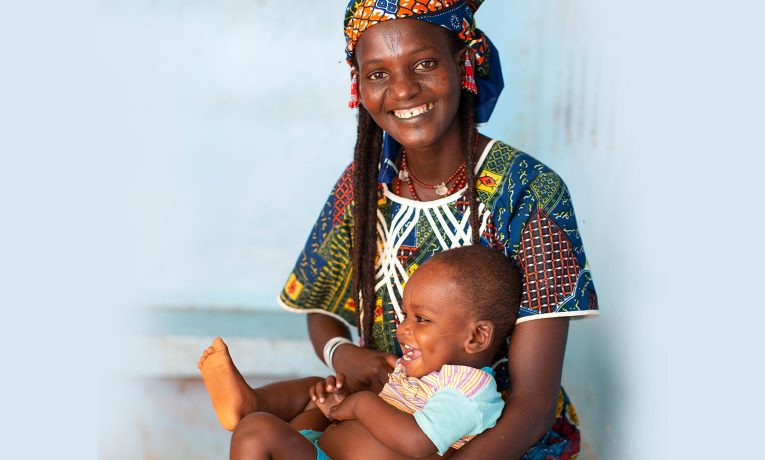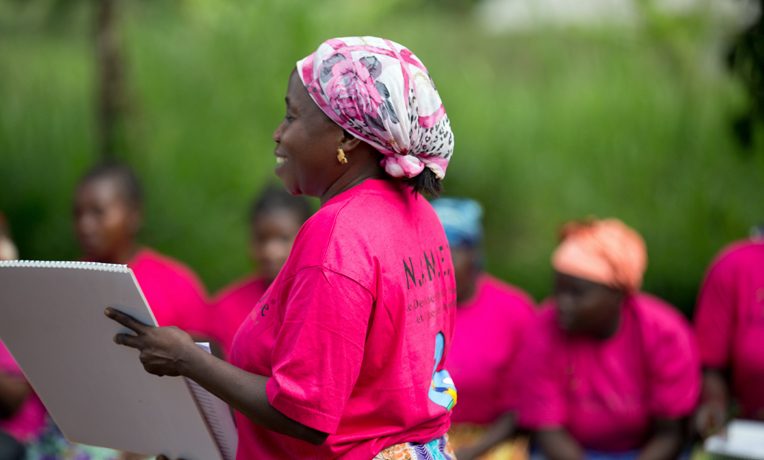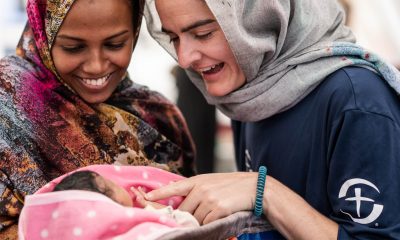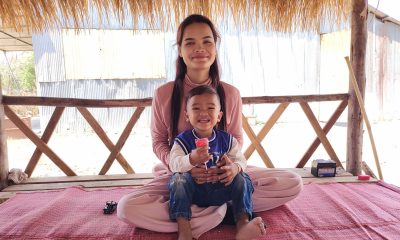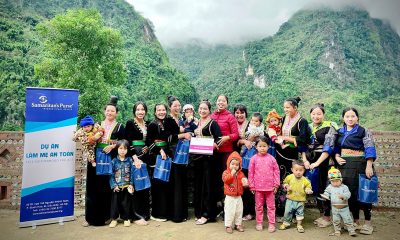As a public health intern with Samaritan’s Purse in the Democratic Republic of the Congo, I’ve been blessed with professional and personal experiences I wouldn’t have had otherwise. I’ve had the opportunity to assist in the management and development of health programs, learn French and Swahili, and spend time surrounded by staff members who are serious about their walk with God. But my favorite experiences thus far have involved going into the field to witness how God is using Samaritan’s Purse programs firsthand.
I recently made a trip to Nyankunde, a large village about 45 minutes south of our base in Bunia. The purpose of my trip was to learn more about the nutritional and maternal educational development program, which is one of the projects I assist in managing. The three-year program employs a team of national staff members who train a group of young mothers and pregnant women from the surrounding villages in various pediatric health topics. These leader mothers then train their neighbors twice a month on the material they learned.

Women at a training play games to educate themselves about how disease spreads.
More than 6,000 women have participated in these trainings, and these lessons are having an incredible impact. Many of the women take the lessons seriously and immediately seek ways to apply the information. For example, after a recent module on hygiene, a group of women asked if the Samaritan’s Purse staff would help test their community water sources.
The responsiveness of these women is particularly encouraging because Nyankunde and the surrounding area were devastated by the civil war. Even 10 years later, the hollow walls of many buildings serve as a reminder of the military conflict. Rebel groups came in and slaughtered scores of innocent people, including patients at the village’s missionary hospital. Staff members talk about the conflict as if it were a recent occurrence. Despite all these hardships, God is far from done with places like Nyankunde.
Learn more about Nyankunde Hospital.
I had the privilege of recently translating a testimonial of one of our beneficiaries. This young woman was in the midst of marital problems after having two miscarriages. Her husband, upset that she was unable to have children, received permission from his family to divorce her and began searching for a new wife.
Not long after becoming a leader mother through Samaritan’s Purse, the young woman learned that she had become pregnant for a third time. This news was a great source of anxiety, and she was convinced that her husband would divorce her if she miscarried again. Unsure what to do, she remembered learning about the importance of prenatal care from one of the Samaritan’s Purse health lessons.
At the nearby health clinic, clinicians discovered that she had a uterine infection that caused the previous miscarriages. The clinicians treated the infection, and the woman eventually gave birth to a healthy baby boy. Today, both the woman and her husband claim that their marriage is as strong as it ever has been. The couple attributes the state of their marriage to God placing Samaritan’s Purse in their village.
The Spiritual Impact

A mother sits with her sick baby at Nyankunde Hospital.
Samaritan’s Purse staff members find ways to seamlessly address the spiritual needs of its beneficiaries. They earn the respect of the leader mothers they regularly train.
There have been several incidences when leader mothers have been avoiding each other because of past disagreements. After hearing about these quarrels, our staff members have used the training sessions as an opportunity to preach forgiveness. And each time, the leader mothers have resolved their differences.
The training sessions have also opened doors for Samaritan’s Purse staff members and some of the leader mothers to share their faith. Many have come to ask Christ for forgiveness as a result of the project, including a Muslim woman who is now active in a local church.
To show our appreciation for the leader mothers, Samaritan’s Purse distributed hardcover Swahili Bibles and Samaritan’s Purse T-shirts to the women in April. These women were overjoyed to receive the Bibles. Due to the poverty in the region, people rarely have Bibles, even those who regularly attend church. The women have since shared their Bibles with family and neighbors and have even used the Bibles while giving their health lessons with their neighbors.
The excitement and appreciation that the women demonstrated after receiving the Bibles is something I continuously come across while reading reports and talking with those involved with the project. I’m looking forward to seeing how God continues to use this program to improve both the physical and spiritual wellbeing of His people.
